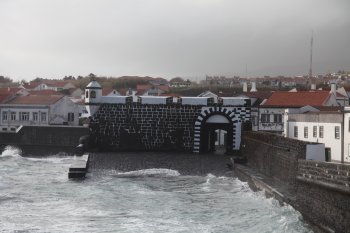Explore the best places
Results for castelo in Portugal
Estátua de Viana
- heritage
Alameda 5 de Outubro
4900-515, Viana do Castelo
A female statue that represents Viana do Castelo. Crowned by a castle, she has a round caravel on her left hand. There are also four busts that represent the four continents: Europe, Asia, Africa and America.
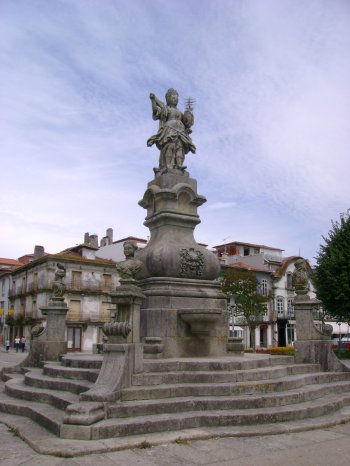
Antigos Paços do Concelho e Cadeia de Castelo Branco - Domus Municipalis - Centro de Interpretação do Bordado
- heritage
Praça Camões
6000-262, Castelo Branco
Located in Praça Velha, this 16th-century Manueline-style building stands out for its architecture and the elements that characterize it. On the main façade, the balcony, the Coat of Arms of Portugal, the Coat of Arms of D. Manuel, the Armillary Sphere, and a tombstone in Latin, from 1646. Above the main door, there is a belfry, now without a bell, which in the past announced the closing of the city's defensive gates. Institutions such as the City Council or the jail have already operated in this place, which currently houses the Embroidery Interpretation Centre.
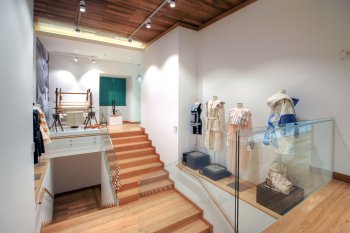
Recolhimento de Nossa Senhora das Dores
- heritage
Rua Dom António de Melo de Castro
7150-156, Borba
Old beatério of very simple construction, without ostentation and with a church without façade facing the street. It was founded by testamentary disposition of d. Joana de Azevedo Mourão Castelo Branco, widow of Fernão Vaz Strain.
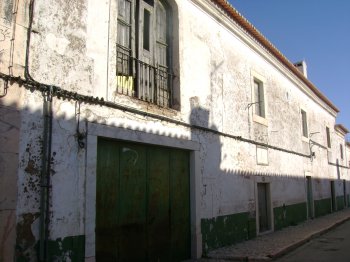
Janela Manuelina da Casa dos Pereiras e Lacerdas
- heritage
Largo de Santa Maria
7800-133, Beja
Manueline window from the beginning of the XVI century, originally from the Quinta do Castelo and reused during the works of the casa dos Pereiras in 1950’s. This window is characterized for its decorative richness that shows the influence of the Italian renaissance.
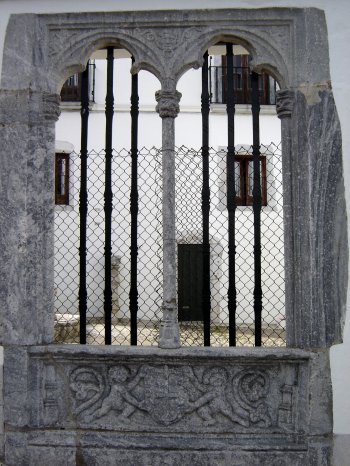
Igreja de São Brás dos Matos
- heritage
Estrada Principal
7250-053, Mina do Bugalho
Baroque church built probably in the first third of the 16th century. It was then enlarged in 1721, when it was also bronze Bell donated by the Bishop of Elvas, Dom João de Sousa Castelo Branco. In the chancel, highlighted by the frescoes of the Baroque period.
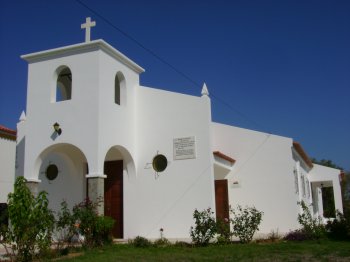
Casa dos Barbosa Maciel / Museu de Artes Decorativas
- heritage
Largo de São Domingos
4900-330, Viana do Castelo
Noble House with a rectangular plant Mannerist willing lengthwise and two floors. It was built between 1720 and 1723, working initially as a residence. In 1926 it was here opened the Museum Municipal de Viana do Castelo, with space being extended in 1990.
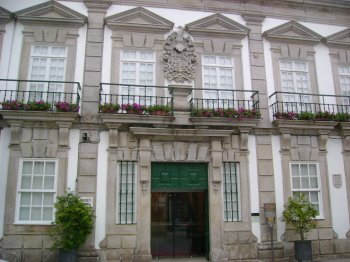
Igreja da Misericórdia de Faro
- heritage
Praça Dom Francisco Gomes de Avellar, 17
8000-168, Faro
This church, sided by a hospital, started its construction in 1581, in the place of the old Espírito Santo hermitage, by order of the bishop Dom Afonso Castelo Branco. In the sequence of the great damage inflicted by the earthquake in 1755, the façade was remodelled and a new hospital was built.
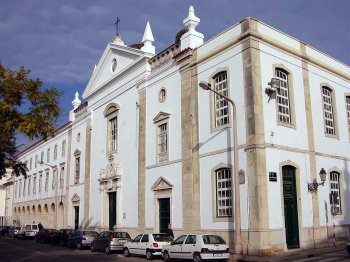
Pelourinho de Valença
- heritage
Rua Doutor José Maria Rodrigues
4930-718, Valença
This is a Roman monolithic milestone from Emperor Cláudio, which was adapted to a pillory. It has arounf 2.15 metres high and 54 cm. diameter. In Viana do Castelo district it is the second milestone to be adapted to a pillory during the 17th century, as far as it is known.
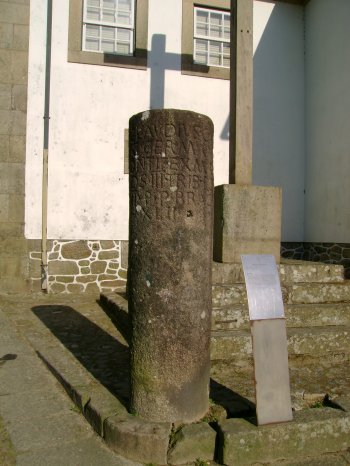
Edifício da Pousada de Óbidos
- heritage
Calçada da Misericórdia
2510-122, Vila de Óbidos
An 18th-century building with a longitudinal plan, composed of two volumes of two and three stories. In the mid-20th century, a new building was added to serve as a hospital and home for charitable institutions, where they remained until 2000. Currently, it houses the Pousada Castelo de Óbidos.
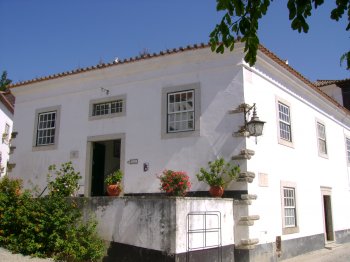
Portão Fortificado de Porto Pim
- heritage
Rua Conde D'Ávila
9900-019, Horta
Also known as a stronghold of the patrol, this door is part of the defensive complex dating from the early 17TH century which included the Guardhouse, the Castelo de São Sebastião and the Strafing, connected by a wall of support along the Bay of Porto Pim. It is a fortification of L-shaped plant with ten Gunners.
